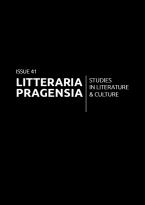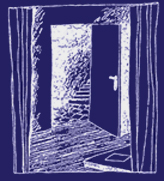
|
21.41 Reappraising the Black Literary TraditionEdited by: Christopher E. Koy Volume: 21 Issue: 41 July 2011 |
Contents
|
Christopher E. Koy
Introduction
|
1 |
|
Šárka Bubíková
Maud Martha and the Tradition of the Ethnic Female Bildungsroman
show abstract
Unlike Gwendolyn Brooks's poetry, her only novel Maud Martha has drawn comparably little critical attention. This article places Maud Martha in the tradition of the novel of development or Bildungsroman and discusses how it inhabits the genre and conforms particularly to female and ethnic variations thereof. Set during the 1940s on Chicago's South Side, the novel depicts the difficulties of a young protagonist whose prospects in life are limited by her gender, color and poverty. The rich architectural language is woven through with motifs of Maud Martha's ambitions, anger and frustration - feelings that she unflinchingly tries to mask and tame. |
7 |
|
Marie Knoflíčková
Racial Identities Revisited: Toni Morrison's "Recitatif"
show abstract
Toni Morrison's "Recitatif" uncovers the very fine fabric racial identities are made of. This paper explores the way Morrison explores, through friendship of two women of different race, the idea that the centrality of racial identity to one's personal identity is questionable as there are no objective foundations for drawing the color line. Her short story resonates with the thought of Anthony Appiah who considers racial identity to be one of many identities one assumes in life. An idea which was explored particularly by African American writers of the 1980s and their followers, who opened up the seemingly homogenous identity of African Americans to the plurality of their experience thus placing it under close scrutiny. |
22 |
|
Karla Kovalová
"The Bone-deep Longing ... in the Possibility of That Child": The Transforming Potential of Fatherhood in David Anthony Durham's Walk Through Darkness
show abstract
This essay explores racial and masculine identity in David Anthony Durham's novel Walk Through Darkness (2002). It argues that Durham presents an alternate view of the male slave's journey from bondage to freedom while creating a new archetype of the black hero - a slave father - whose escape from bondage is spurred less by the desire for freedom than the prospect of being reunited with his beloved woman and yet unborn child. In doing so, it radically challenges the paradigm of literacy-identity-freedom established by original male slave narratives, while adopting (albeit simultaneously altering) the paradigm of family-identity-freedom, embodied by original slave narratives written by women. The essay further suggests that, using the story of a fugitive slave from antebellum America in Walk Through Darkness, Durham reinvents the meaning of black fatherhood by introducing a new textual model of African American manhood, in which fatherhood is not hindered by ‘the stigma of race' but displays instead a transforming potential that allows black males to become (more complete) men. In addition, the essay highlights that, reflecting the historically messy nature of American racial bloodlines, Durham challenges the existing definition of American racial identity by writing in the largely unexplored experiences of European immigrants. |
34 |
|
Christopher E. Koy
African American Vernacular Latin and Ovidian Figures in Charles Chesnutt's Conjure Stories
show abstract
Scholars have assumed that Charles Chesnutt (1858-1932) employed a technique of interviewing African Americans for their folktales in order to compose his collection of stories entitled The Conjure Woman (1899). However, no thoroughgoing attempt to locate the sources for these conjure stories by Charles Chesnutt (1858-1932) has been undertaken. Scholars have simply positioned African American folklore as the source without actually citing any of the hundreds of tales collected by folklorists for comparative study because Chesnutt's authentic use of African American Vernacular English and the voodoo give a folklore ‘feel' to his stories. While folklore has been thoroughly documented as the source for the famous Tales of Uncle Remus (1880) by Joel Chandler Harris - even Harris's African American informants have been identified - no similar verification appears in studies by Chesnutt scholars who have presumed that the folktale was Chesnutt's source. No similarities among the African American tales collected by folklorists were discovered. The conclusion drawn in this study is that, in composing his conjure stories, Chesnutt combined his extensive knowledge of classical literature with whole cloth to produce The Conjure Woman, excepting the first conjure story, "The Goophered Grapevine" (1887), the metamorphosis section of which Chesnutt had heard from his father-in-law's gardener in Fayetteville, North Carolina. As for many of the remaining stories, rather than African American folklore, Chesnutt made use of Ovidian figures from The Metamorphoses. |
50 |
|
Jakub Ženíšek
"Scriptor Politicus or Scriptor Poeticus?" Charles Johnson's Ventriloquist Rendering of Phillis Wheatley
show abstract
Charles Johnson, one of the most fiercely innovative and philosophically savvy American authors of the late twentieth and early twenty-first century, is perhaps best known for his inventive rendition of the trans-Atlantic slave trade in his novel Middle Passage (1990), for his postmodern fictitious slave narrative Oxherding Tale (1982) set in the antebellum American South, and for Dreamer (1998), a philosophically charged reinvention of Martin Luther King's 1966 civil rights campaign in Chicago. The choice of topics would seem to suggest that Johnson is very much steeped in the twentieth-century African American literary tradition, a significant part of which deploys Black American history as a vehicle for social criticism, overt or covert. However, Johnson's non-fictional writing unambiguously indicates that, despite his brief love affair with the radical posturing of the Black Aesthetic Movement of the 1960s, he has repeatedly argued for a more universalist black writing untainted by ideology. His detached poise has probably been attained intuitively, yet it may also be seen in purely methodological terms, as a result of his formidable expertise in phenomenology and his penchant for Buddhism. The combined input of these two (potentially overlapping) influences - the phenomenological reduction plus the Buddhist notions of nonattachment (vairagya) and withdrawal from suffering - is a plausible progenitor of an ideologically detached (though not dispassionate) African American writer. In addition to his philosophical and critical writings, namely Being and Race: Black Writing Since 1970 (1988) and Turning the Wheel: Essays on Buddhism and Writing (2003), Johnson touches on this topic in several of his fictional pursuits, perhaps most explicitly in "Poetry and Poetics," a very short story from his 1998 collection Soulcatcher. The entire story consists of a 7-page dialogue between the eighteenth-century African American poet Phillis Wheatley and her mistress, and it centres around a single topic - the dichotomy between a universalist and partisan writer. Johnson seems to be conducting the dialogue as a self-dispute over the public responsibilities of a gifted poet, in which the universalist and apolitical side eventually gets the upper hand. |
71 |
|
Review of
Stanislav Kolář
,
Zuzana Buráková
,
Katarína Sandorová
Reflections of Trauma in Selected Works of Postwar American and British Literature
Košice: Pavol Jozef Šafárik University, 2010.
129pp.
→ Pavla Veselá, Missing Issues |
92 |
|
Review of
Eva Urban
Community Politics and the Peace Process in Contemporary Northern Irish Drama
Bern: Peter Lang, 2011. 303 pp.
→ Radvan Markus, The Stage as Utopia |
96 |
|
Review of
Mária Kurdi
Representations of Gender and Female Subjectivity in Contemporary Irish Drama by Women
Lampeter: The Edwin Mellen Press, 2010. 264 pp.
→ Hana Pavelková, Female Voices on Irish Stages |
99 |
|
Review of
Pavel Drábek
Fletcherian Dramatic Achievement: A Study in the Mature Plays of John Fletcher (1579-1625)
Brno: Masarykova univerzita, 2010. 214 pp.
→ Tomáš Jajtner, Fletcher Re-visited (and Re-staged?) |
102 |
|
Review of
Steve Hardy
Relations of Place: Aspects of Late 20th-Century Fiction and Theory
Brno: Masarykova Univerzita, 2008. 139 pp.
→ Petr Chalupský, Outside the Dominant Centre - the Poetics and Politics of Place in the Novels of Raymond Williams and Iain Sinclair
|
106 |


